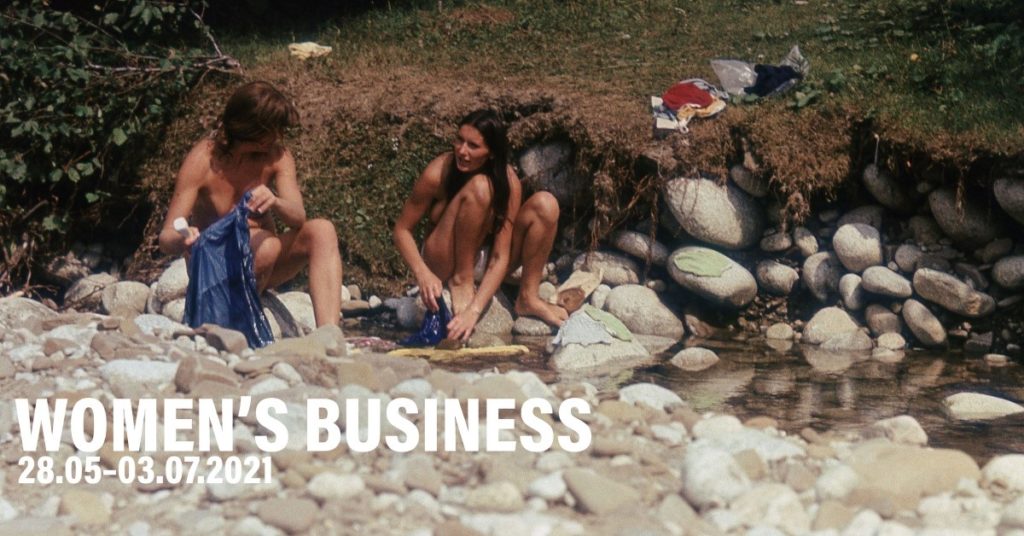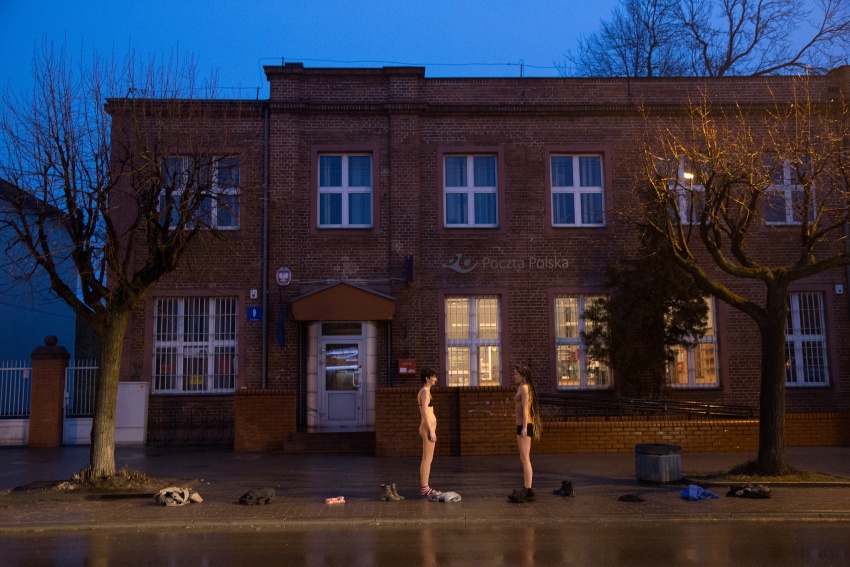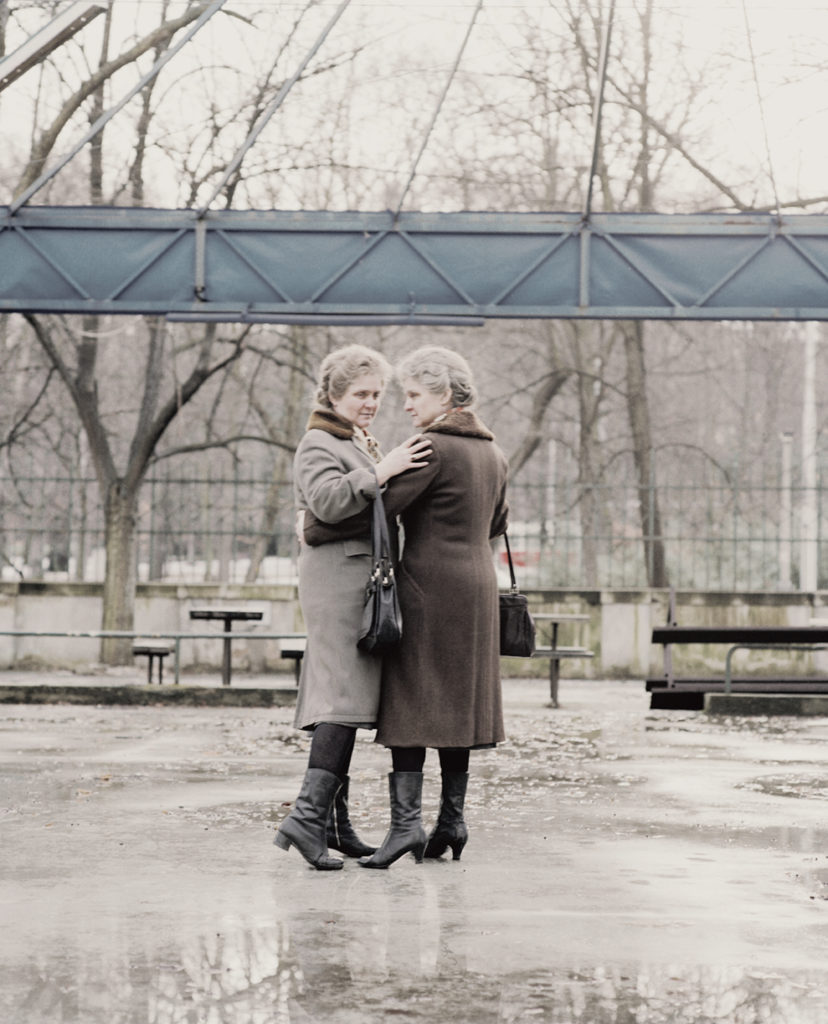
Milena Dopitová, Katarzyna Górna, Zuzanna Hertzberg, Irena Kalicka Alicja Karska i Aleksandra Went, Katarzyna Kozyra, Károly Makk, Jacek Szmuc
Opening: Thursday, May 27, 2021, 6—8 pm The exhibition is on view through July 3, 2021 Tuesday—Saturday, 12 noon—7 pm
The message of the exhibition is the intimacy that a woman entrusts to another woman. The title refers to an Aboriginal ceremony from the Australian Northern Territory, a ritual involving several generations of women, from young girls to their grandmothers, a ceremony hidden from the prying eyes of men. It is a metaphor for the communal experience of women, in which nudity is seen in terms of mutual care, cooperation, tenderness and protectiveness, in a sphere of safety and empathy. Our point of departure was a set of photographs of Kora (1972), who would become major icon of Polish pop, and her friend Joanna, captured by the photographer Jacek Szmuc in natural surroundings. Two sequences of frames mark the stage of late pregnancy and maternity, together with the “ritual” of washing children’s clothes by a stream. At the opposite end, we show a fragment of Katarzyna Kozyra’s emblematic video installation from the baths in Budapest (1997), heralding the era of sisterhood in the visual arts of the 21st century in a pioneering way. What these works have in common is the uniqueness of the female experience, free from the pressure that girls are subjected to after bathing, on catwalks, in fashion magazines and in the structures of large corporations.
The exhibition is complemented by works showing various relations of tenderness and cooperation.
The on-camera performance by Warsaw-based artivist Zuzanna Hertzberg, Purim Revisited (2014), is a story about an intercultural relationship, symbolized by the swapping of clothes among girls. Disguise and the partial dismantling of identity end up cementing a space of dialogue across disunification.

Solidary participation in an effort to recover the lost memory of public places is, in turn, the subject of the film Stągiewna 45 by Alicja Karska and Aleksandra Went (2004). In a suggestive image depicting the reconstruction of part of a street condemned to demolition, the artists weave their personal reflection on the irreversibility of social processes and the erasure of traces of the past.
Irena Kalicka’s Witches (2016) touches on the problem of revolted female autonomy. Departing from the fashionable rhetoric of women’s rights repeated by the media, the artist refers to the unique character of women’s rituals, their peculiar magic, emphasizing the motif of opposition to being tamed and supervised by patriarchal civilisation.

Katarzyna Górna and Kozyra’s photo series Kasie-Threads (1993) depicts the act of a girlish game involving nudity, an exploration of the limits of one’s own corporeality, female partnership putting a stop to the male vision of a woman as a mute object of desire.
The experience of female solidarity is stretched across a timeline. Czech artist Milena Dopitová’s film Sixtysomething (2003) redefines the notion of sisterhood, locating it outside the classical, devalued understanding of the female body as a subject of youthful energy and sex appeal. The process of plastic rejuvenation is contrasted here with a conscious ageing process, which accentuates the act of mutual care that escapes the pressure of passing time.

A specific coda to the exhibition are two fragments from a wonderful film by the Hungarian director Károly Makk, Another Way (1982), starring two Polish actresses, Grażyna Szapołowska and Jadwiga Jankowska-Cieślak (given the Cannes Best Actress Award). It was the first film in the history of Eastern European cinema about lesbian love, which in later years became an inspiration for many LGBTQA+ circles.
It is this another way of looking – a glimpse from beyond the barricades and street flares – that we dedicate to the viewer as a moment of respite before the next battle.
Curators: Bożena Czubak and Andrzej Wajs
Cooperation: Anna Walewska
